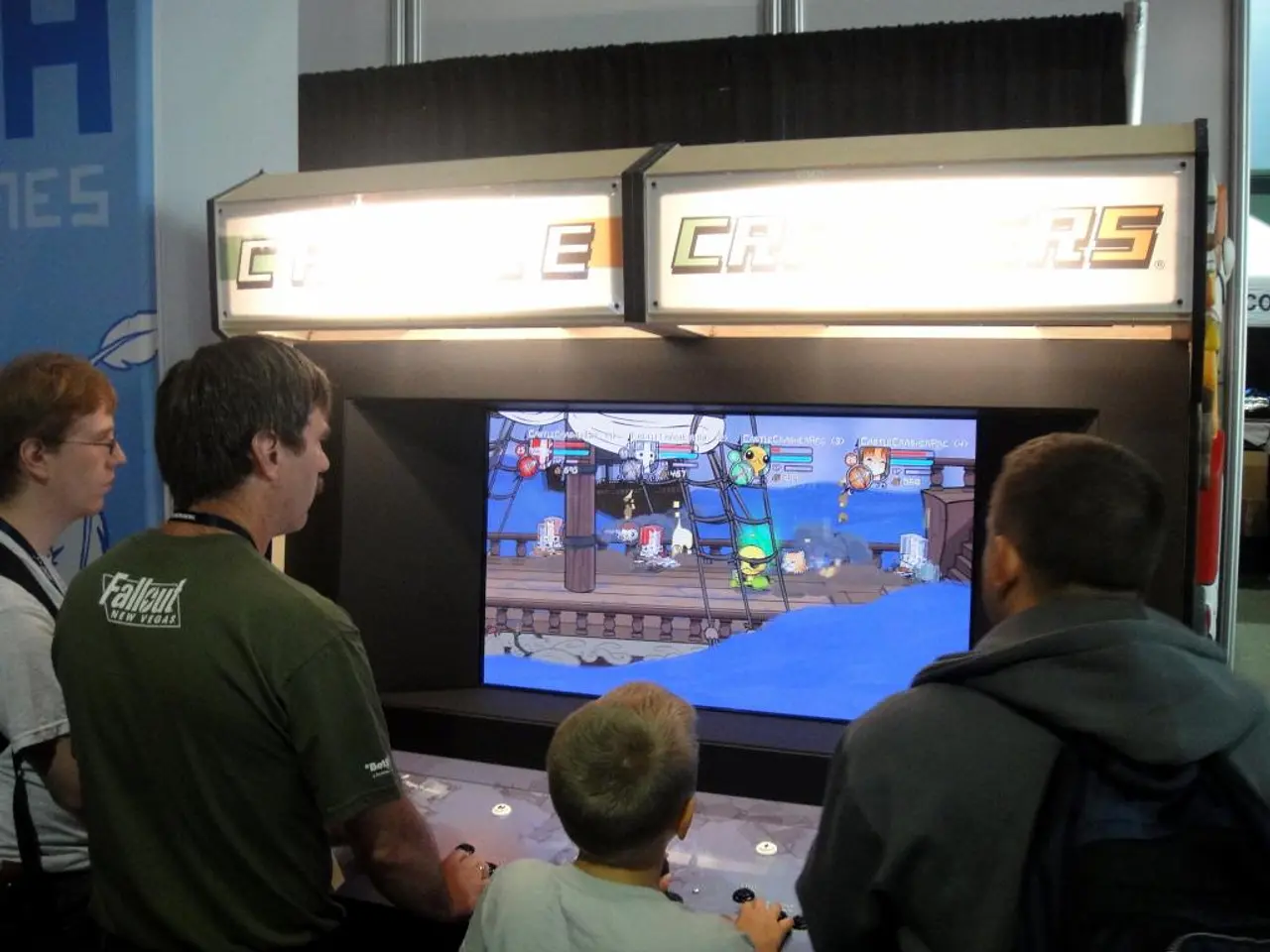Astounded by the prevalence of AI in video game development
In the ever-evolving world of video games, artificial intelligence (AI) has taken centre stage, becoming a deeply integrated part of the game development process. From asset creation to storytelling and testing, AI is now viewed as a collaborative creative partner that helps generate characters, textures, environments, code, and narrative content efficiently and at scale[1][2][4].
Major game engines like Unity, Unreal Engine, and Godot have embedded AI-powered features for procedural generation, animation, and asset creation, enabling developers to produce games faster and with fewer resources[1][2][4]. As a result, about 20% of new Steam game releases in 2025 incorporate generative AI for various purposes such as visual asset creation (60% usage in disclosures), audio generation (music, voices), narrative writing, and even marketing content like descriptions and promotional materials. This represents a 681% increase over the previous year[3].
The reaction among gamers has been a mix of acceptance and curiosity. While some express concerns about indie developers using AI instead of human artists, others appreciate the democratization of creativity that AI brings[5]. AI allows indie developers to create compelling games without large teams or budgets, which may expand the variety and creativity of games available to players. However, because AI is still relatively new in this domain, ongoing discussions about quality, originality, and the role of human creativity are likely[1][4].
One of the most intriguing examples of AI-generated games is GenAI Roguelite, a text-based RPG where every location, NPC, and game mechanic was entirely generated by AI[6]. The game has received an 82% positive score from 432 player reviews, with reviewers enjoying the chaos of the random outcomes and the game's inability to maintain a coherent story[6]. Some people are even enjoying GenAI Roguelite for the silly novelty of it.
The debate over the use of AI in game design is not going away anytime soon. Some gamers recognize the complexity of different forms and uses of AI, and are OK with minor uses as long as it's not for core assets. On the other hand, others argue for the preservation of human creativity in the industry[7].
As of now, AI disclosure has only been mandatory on Steam since January 2024, and some existing games' details may not have been immediately updated. The number of games on Steam that disclose the use of generative AI has risen by 700% in a year, from around 1,000 games a year ago to almost 8,000 now[8]. Games like My Summer Car, Liar's Bar, and The Quinfall are among those found to be disclosing AI use[8]. This represents 7% of the whole Steam library[8].
For developers and enthusiasts looking to delve into the world of game development, guides for the best game development software and best laptops for game development are readily available[9]. The future of gaming is leaning toward more AI-assisted content generation and personalized gameplay experiences[1][3][4].
References:
- Unity's AI-Powered Features
- Unreal Engine's AI Capabilities
- Totally Human Media Report
- Godot's AI Integration
- Reddit Discussion on AI in Games
- GenAI Roguelite Reviews
- Opinion: AI and the Future of Game Design
- Steam Games Disclosing AI Use
- Best Game Development Software and Laptops
- The integration of artificial intelligence (AI) in the game development process has expanded to include AI-powered features for procedural generation, animation, and asset creation in major engines like Unity, Unreal Engine, and Godot.
- In 2025, about 20% of new Steam game releases are expected to incorporate generative AI for various purposes, including visual asset creation, audio generation, narrative writing, and marketing content.
- AI has been viewed as a collaborative creative partner in game development, helping generate characters, textures, environments, code, and narrative content efficiently and at scale.
- AI allows indie developers to create compelling games without large teams or budgets, potentially expanding the variety and creativity of games available to players.
- The debate over the use of AI in game design is ongoing, with discussions about quality, originality, and the role of human creativity prevalent in the industry.
- GenAI Roguelite, a text-based RPG entirely generated by AI, has received an 82% positive score from 432 player reviews, showcasing the potential for AI-generated games.
- Guides for the best game development software and laptops are available for developers and enthusiasts looking to delve into the world of game development, as the future of gaming leans toward more AI-assisted content generation and personalized gameplay experiences.




